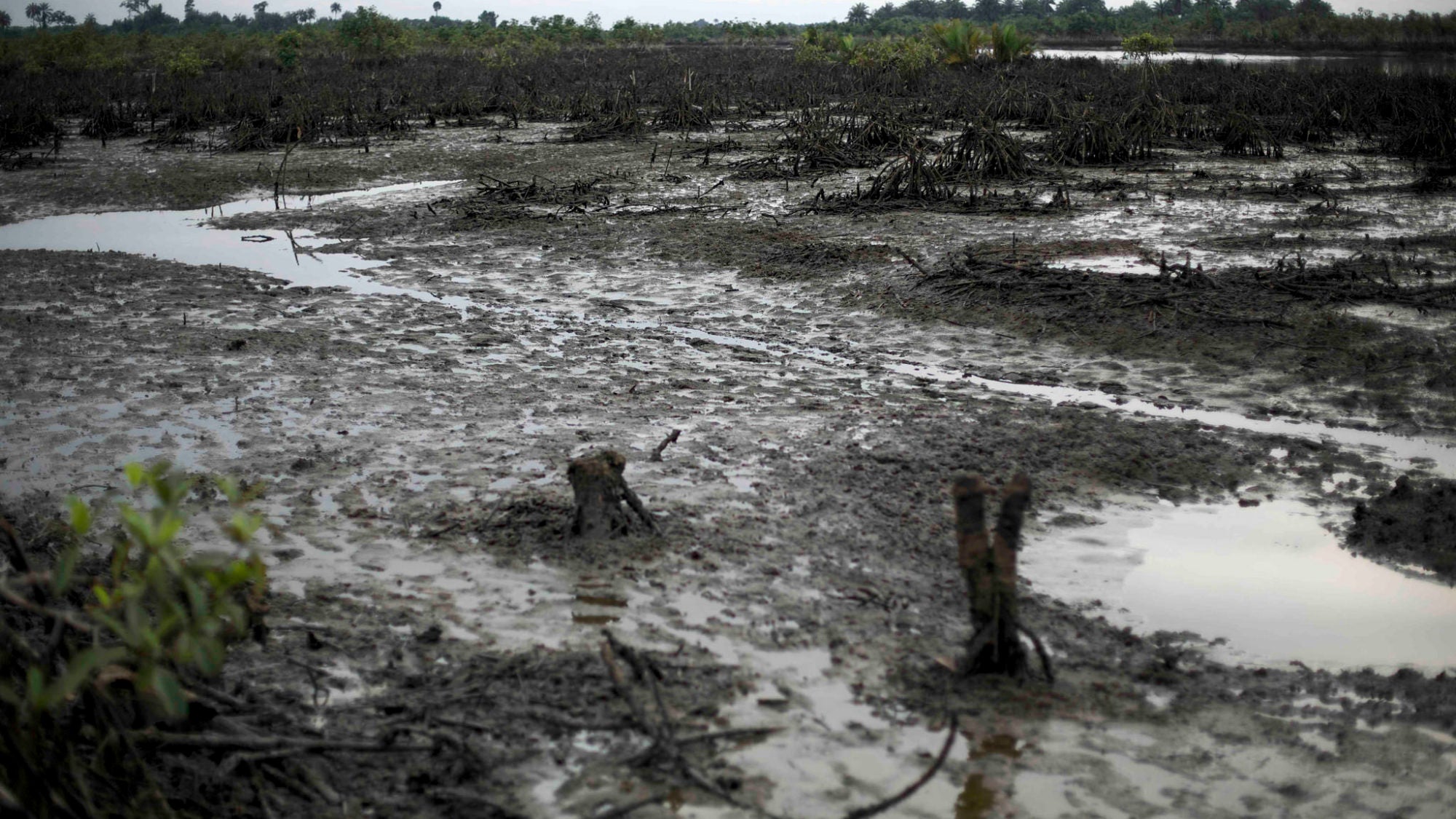
Title: Climate Change, Carbon Politics, and Kenya’s Democratic Future
Carbon politics is playing out in oil-producing African countries with lethal consequences. Countries like Nigeria, Angola, Sudan, and South Sudan are conflict-ridden and economically unequal, and, as climate change concerns clash with new fossil fuel-driven development efforts, carbon politics is taking on ever-greater significance. While the scramble for fossil fuels could increase authoritarianism as it spreads in East Africa, an ecologically-driven imperative to address climate change could reinforce stronger democratic institutions.
Nigeria is the quintessential example of the destructive impacts of oil. In the 1950s, vast oil reserves were discovered in the Niger Delta, one of the planet’s most precious wetlands. Economic development subsequently skewed toward oil, which constituted eighty three percent of Nigerian exports and seventeen percent of government revenue by 1972. By the early 1990s, oil revenue accounted for more than ninety percent of Nigeria’s foreign exchange receipts, about seventy percent of budgetary revenues, and twenty-five percent of GDP. Nevertheless, Nigeria has little to show for its oil wealth, as half of its population lives in poverty. Fertile agricultural lands and water have become contaminated, making farming and fishing more precarious in the Niger Delta.
Responding to the damage caused by oil, Nigerian author and environmental activist Ken Saro-Wiwa formed the Movement for the Survival of the Ogoni People to protect the environmental and human rights of the Ogoni people who live in the Niger Delta. Saro-Wiwa fought against the vast environmental, social, and political destruction caused by oil extraction in the Niger Delta. In response, the Nigerian government executed him. Investigations into Saro-Wiwa’s death revealed an alliance between members of the oil industry, including Shell, and the then-brutal military dictatorship. While Nigerians have since tried to rebuild a more democratic politics, they face not only the legacy of an oil-fueled, corrupt, and violent politics, but also concerns about serious climate change impacts.
Like Nigeria, many other African states are facing the reality of climate change. While Africa holds a relatively small percentage of global oil reserves (about 3.6 percent) and contributes only 3 percent of the world’s carbon dioxide emissions from energy and industrial sources, the latest Intergovernmental Panel on Climate Change (IPCC) report warns that many parts of the continent face serious climate change risks that put socio-economic progress in jeopardy. Overall, climate concerns are bolstering environmental and social activism in Africa, which is clashing with expanding fossil-fuel interests.
Kenya is another clear case of deepening fault lines resulting from carbon politics. The country has a progressive constitution, a history of environmental and civic activism, and an innovative, growing renewable energy sector. Yet, it also has an entrenched, rapacious political elite eager to profit from newly discovered oil deposits in the region. Carbon fuel-related infrastructure deals, including a proposed coal power plant deal, offer ample opportunities for corruption.
Oil-related projects in the Kenyan coastal city of Lamu demonstrate this link between corruption and fossil fuels. The ongoing construction of oil infrastructure, including a deep sea port in Lamu, which aims to move South Sudanese oil to the rest of the world, has transformed this UNESCO Heritage site and triggered land grabbing and speculation. Evidence already suggests that, as in Nigeria, oil is South Sudan’s curse, contributing to a skewed ninety eight percent of its budget and causing violence in a country where eighty two percent of the people live in poverty. By supporting this extraction, the Kenyan government is contributing to South Sudan’s turmoil, sacrificing the long-term future of Lamu and undermining its own climate goals.
Politically connected investors are also pushing for an economically unsound coal power plant in Lamu. In a corrupt deal, the twenty-five-year power purchase agreement between the government and the company Amu Power would force Kenya to pay at least $360 million in annual capacity charges, even if no power is generated. In addition, critical information on mitigating environmental impact was missing from the project proposal. In response, Kenya’s National Environmental Tribunal revoked the plant’s license handing environmental and justice activists an important victory in the “ecological war” against carbon-based fuels and demonstrating judicial independence. Amu Power has since appealed the decision.
As this case shows, carbon politics in Kenya are on a collision course with the constitution, climate policy, and law. The 2010 constitution provides citizens with the right to a “clean and healthy environment,” and to “have the environment protected for the benefit of present and future generations through legislative and other measures.” Kenya passed the Climate Change Act in May 2016 to guide mitigation and adaptation efforts and help “achieve low carbon climate resilient development.” The Act has a strong National Climate Change Action Plan, which notes that the country is already experiencing negative climate change impacts. While already a leader in renewable energy, Kenya has untapped potential in wind, solar, biogas, and hydropower that could be harnessed to help realize its climate and social goals.
Kenya should stay the course set by its laws and constitution and should be supported by global cooperation to do so. As Kenya’s Nobel Laureate, the late Dr. Wangari Maathai, noted in her 2004 Nobel speech, “addressing the challenges of the environment [is] impossible without democratic space.”
Kenya’s democratic and ecological futures are clearly intertwined.
Jacqueline M. Klopp is Co-Director of the Center for Sustainable Urban Development and a Research Scholar at the Earth Institute at Columbia University, where she also teaches in the Sustainable Development program.
Abdullahi Boru Halakhe is a Horn of Africa policy analyst.